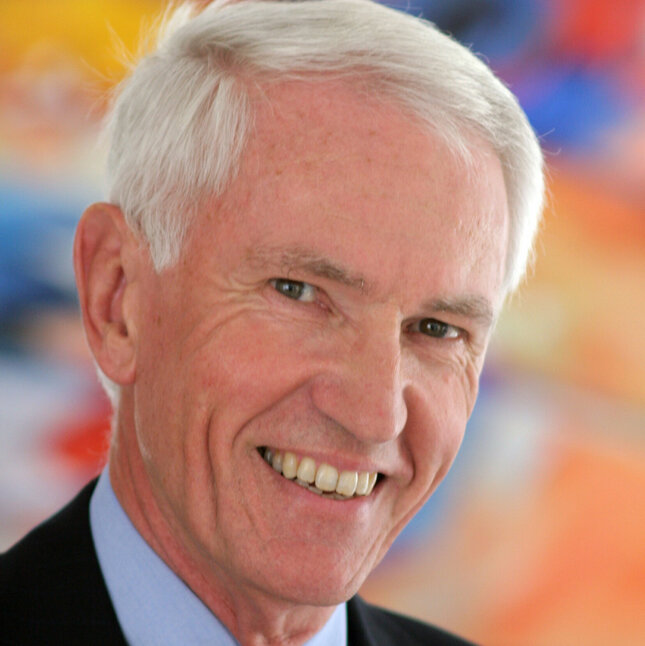
During his career Martin Schuurmans led several institutions that helped propel innovation. He was the head of solidstate research at Philips Laboratories, a professor of Solid-State Physics, the chairman of the NatLab Philips, the Vice-Chairman of Philips Research worldwide. As a member of the board of Philips Medical he helped Philips grow into what it is today. Behind his impressive list of functions and achievements lies the story of a man who considers himself to be very lucky and insists on sharing that luck with up-and-coming scientific talents. It’s a story that gained a new chapter when he became our latest University Fund donor.
Doing what feels good
Martin: “There were a few moments in my career in which I decided to go and do something different. They led me to exciting opportunities, such as founding EIT, the European Institute of Technology and Innovation, which nowadays is a top EU source of entrepreneurship and start-ups. But in 2005, inspired by my wife who has always been invaluable to my career, I started doing what I loved most: helping talents reach their potential. We set up a school for biomedical science in China and found someone to manage it. But at
the last moment we had to go and do it ourselves.” The 20-year-secret surprise Martin still has fond memories of that time: “We helped men and women from rural areas who weren’t accepted to existing universities to tap into their potential. We took in students who, for the first time in their lives, had a decent place to sleep or even a shower.” Enterprises like these are what Martin calls “Important for society and fun to do.” He modestly attributes a large part of his success to luck, and he shares an important discovery to illustrate why he does so: “When I was young, there was no money for my university education. But I got one anyway, only to find out no less than 20 years later that it was the director of my secondary school who paid for it all. I want to give young talents access to that type of ‘luck’ and some of the and some of the opportunities I had in my life.”
I want to give young talents access to that type of ‘luck’ and some of the opportunities I had in my life
Funding medical research
In 2022 the University Fund started two thematic funds: The Energy Tech Fund and The Health Tech Fund. Martin and his wife donated a substantial amount to the latter. Their motivation lies in his past, working on Philips’ medical innovation, and in personal experiences: “If my father could have had access to medical care as we have it now, he would not have died so young. So many afflictions that used to be fatal are not anymore. To me that is a tangible result of progress. Especially for developing countries, decent medical care is very important. Without it, other types of progress will be very slow indeed.”
The changing role of fundamental research
The importance of fundamental research is something Martin emphasizes strongly and often. When he graduated, it was more embedded in businesses than it is now: “Nowadays, international companies have often seriously reduced their own research efforts. They chose to work with universities more. They also scout relevant start-ups and buy the essential ones to serve their business goals.” But even though the Netherlands rank 5th on the European Innovation Sco reboard (EIS) 2022, Martin always sees room for improvement: “It’s not just Europe we have to look at. The market is and will remain global and we need to keep up with the rest of the world and especially with China.
I hope my modest contribution to the University Fund will help young scientists and future entrepreneurs to develop their talents and let them play a part on that
global stage.”